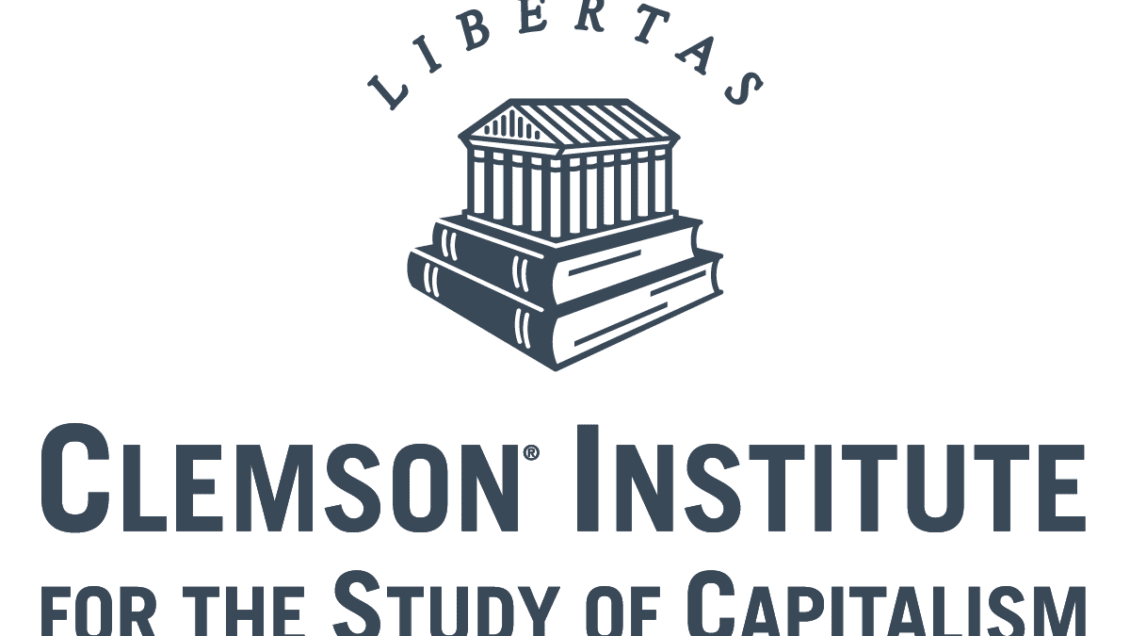Ten students have been selected from nearly 400 who applied for entry into Clemson University’s Lyceum Scholars program for the 2016-17 school year.
By being accepted into the Clemson Institute for the Study of Capitalism (CISC) program, students receive a $10,000 scholarship to study the moral foundations of capitalism, the only university-based program of its kind in the U.S.
The second full class of Lyceum Scholars selected into the program had an average SAT score of 1400. They will receive their scholarships over four years while learning about liberty, free markets and moral character, through a structured and innovative curriculum.
The 2016-17 Lyceum Scholars are: Nathan McDowell, Boiling Springs, S.C.; Casson Helms, Clover, S.C.; Grace Driggers, Lamar, S.C.; Jesse Dennis, McLean, Va.; Madison Bauer, Okatie, S.C.; Sarah Martin, Greenville, S.C.; William Corbin, Travelers Rest, S.C.; Reagan Leonard, Spartanburg, S.C.; Matthew Phillips, Greenville, S.C.; and Elizabeth Nealon, Hanahan, S.C.;
Scholarship recipient Madison Bauer of Okatie, S.C., sees the Lyceum program as a conduit to looking deeper into the government’s power in determining right from wrong.
“Morality is something much argued in political circles, and the question isn’t just ‘what is right,’ but rather ‘who determines what’s right,’’’ the history and political science major said. “When the power of jurisdiction is in the hands of government, it can dictate legislative morality. … and the people are no longer trusted with determining what is right.”
More than 400 students applied for entry into the 2016-17 program, more than twice as many as a year ago. They were selected on academic aptitude and a demonstrated ability to thrive.
Brad Thompson, CISC executive director, said the Lyceum Scholars program is unlike any other program at other U.S. universities. “Over the course of their college careers, these scholars become a very close-knit community and build lifelong relationships. Unlike other programs that teach through traditional texts, students in the Lyceum program learn about liberty, free markets, the American founding and moral character through a ‘Great Books’ approach.”
The Lyceum Scholars program draws on the inspiration from the Lyceum school founded by Aristotle in 335 B.C., where students read from classic texts about renowned academics in political and economic thought. Students are assigned faculty Socratic tutors to create a one-on-one mentorship that helps them apply the ideals they learn to their everyday living.
For William Corbin of Travelers Rest, S.C., the Lyceum program’s curriculum will help him better understand how U.S. citizenry can rein in government power.
“A free society’s foundation is built on personal rights and freedoms. The government merely acts as a restrained protector of these values,” said Corbin. “It’s on the people to keep their government in check, or the government will destroy the free society, and then the people.”
Thompson said the Capitalism Institute’s approach to learning helps develop skills necessary for the scholars to flourish as serious thinkers and eloquent writers. “Through development of these skills, our scholars will have opportunities open to them across a wide spectrum of careers,” he said.
About Clemson’s Institute for the Study of Capitalism
CISC is America’s first and only university-based research and teaching center devoted to exploring the moral, legal, political and economic foundations of capitalism. The institute, founded in 2005, educates a new generation of students about the moral requirements of a free society.
The institute is independently financed. Neither Clemson, nor taxpayers, support the institute or the Lyceum Scholars program financially.
Get in touch and we will connect you with the author or another expert.
Or email us at news@clemson.edu

